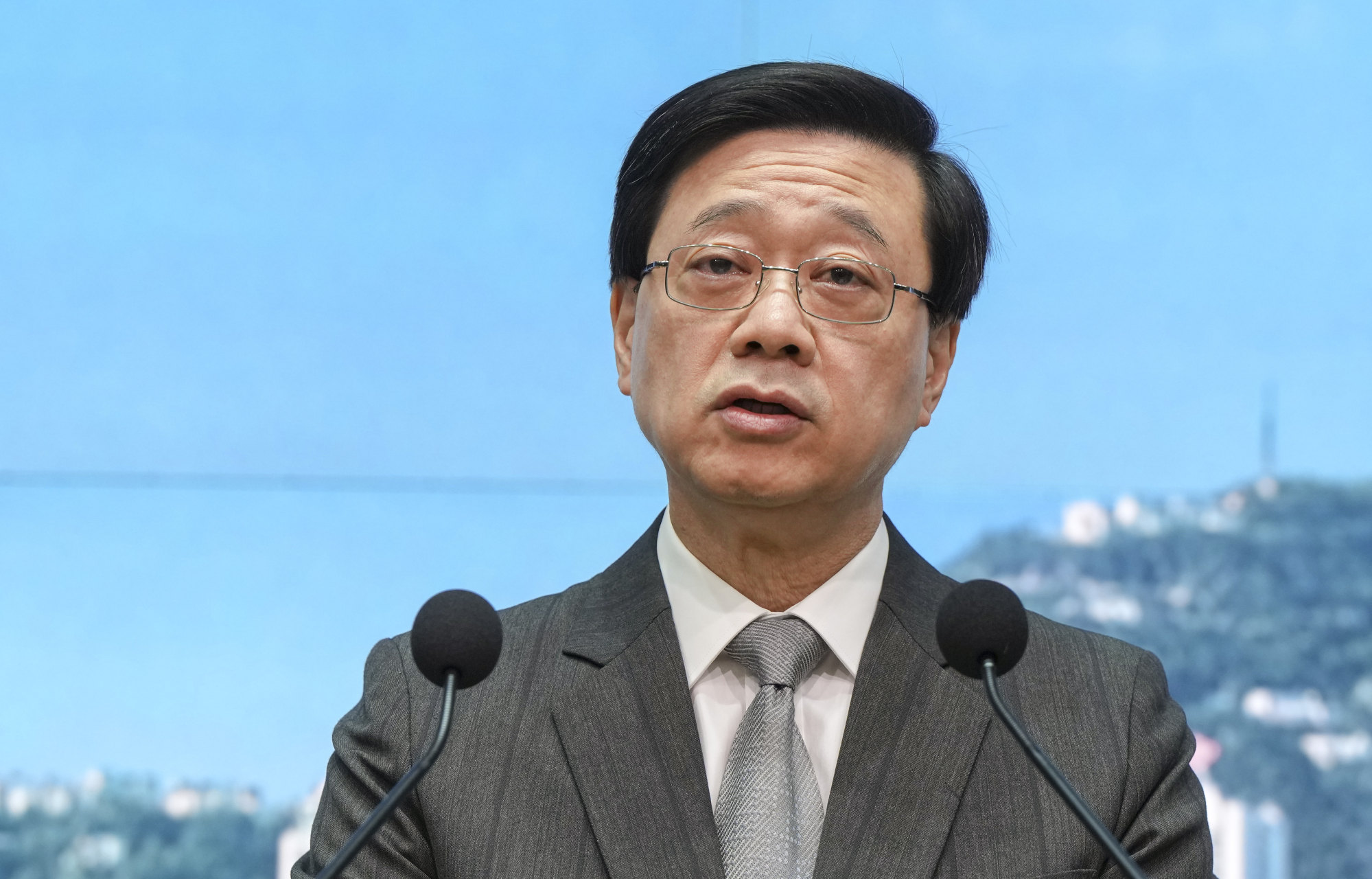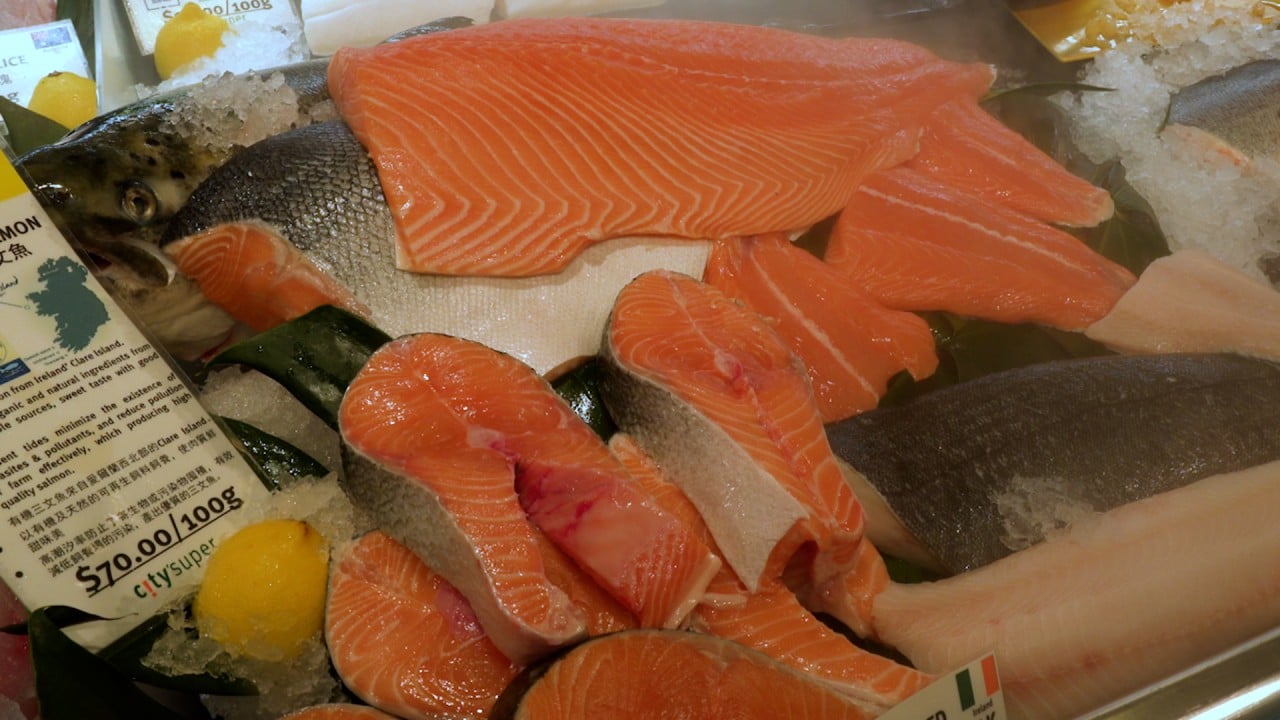
Fukushima row: Hong Kong’s Japanese seafood ban ‘necessary’ if waste water discharge goes ahead, John Lee tells country’s envoy
- City leader tells Consul General Okada Kenichi during closed-door meeting that plan to discharge treated waste water into Pacific Ocean poses ‘unavoidable risks’
- Hong Kong ‘must put in place measures with the view to protect food safety and safeguard the health of citizens,’ Lee says
A prospective ban on seafood from 10 Japanese prefectures is “necessary” to guard against health risks if a controversial plan to dispose of nuclear waste water goes ahead, Hong Kong’s leader has told the country’s top diplomat in the city.
But Japanese Consul General Okada Kenichi expressed his “extreme regret” over Hong Kong’s stance at a closed-door meeting on Friday and “strongly requested” Chief Executive John Lee Ka-chiu to reconsider the proposed curbs.
The city’s leader issued the warning during the exchange requested by Okada, which touched on Japan’s scheme to release treated waste water from the Fukushima power plant into the Pacific Ocean as early as August.
Lee said the “unprecedented” plan to dispose of the large amount of contaminated waste water over a 30-year timeline would cause “unavoidable risks to food safety and the environment”.

Tokyo has maintained the treated waste water is safe after undergoing a filtration system used to remove radioactive materials.
“Should the Japanese side insist on proceeding with the discharge, the [Hong Kong government] must put in place measures with the view to protect food safety and safeguard the health of citizens in Hong Kong,” Lee said. “Such measures are essential and necessary.”
City authorities said they were open to discussing the situation further with the Japanese government.
A consulate spokesman said Okada had provided the Hong Kong government with scientific data that showed the discharge plan was in line with international standards and would not affect the safety of Japanese food exports.
The diplomat had also urged Hong Kong to lift an existing import ban and refrain from any further tightening of restrictions, he said.
The city currently requires radiation certificates for some types of food exports from five prefectures: Fukushima, Chiba, Gunma, Ibaraki and Tochigi.
Hong Kong earlier warned it would ban the import of all aquatic products from 10 prefectures – the five listed above plus Tokyo, Miyagi, Niigata, Nagano and Saitama – over safety concerns.
Official figures showed that major food imports from Japan last year amounted to about 2 per cent of Hong Kong’s total food supply, with 6.75 per cent of all seafood consumed locally coming from the country.
Some experts have raised concerns about the proposal’s rationale as it included four landlocked prefectures, while a Japanese official has accused Hong Kong of “trying to win brownie points from Beijing” with its tough stance.
Mainland Chinese authorities earlier this month said they would continue to ban imports from 10 Japanese prefectures, including Fukushima, while all shipments from other parts of the country would have to undergo full screening instead of spot checks.
Figures from Japan’s Ministry of Agriculture, Forestry and Fisheries showed the mainland market accounted for 19.6 per cent of all seafood exports from the former in 2021.
China’s foreign ministry spokeswoman Mao Ning on Thursday reiterated its opposition to Japan’s discharge plan and urged Tokyo to “listen to the international community” and “undertake serious international control”.
Hong Kong’s proposed ban has also led to concerns among some Japanese restaurants. Catering industry leaders said they expected 30 per cent of such eateries to shut down because of the measure.
Secretary for Environment and Ecology Tse Chin-wan last week said any restaurateurs who suffered a drop in business due to the ban would not receive compensation from the government.
Hong Kong Japanese Food and Cuisine Association chairman Dennis Wu on Friday said he believed the catering industry was largely unfazed by the lack of compensation and that checks by authorities were being carefully conducted to preserve the quality of food imports.
“It is our job to regain the consumer’s faith in Japanese food through explanation and the promotion of vital information,” he said.
While Wu acknowledged demand for sushi at one supermarket chain had dropped 27 per cent over the past two weeks, he said he felt things would return to normal once outlets could bring in seafood products from alternative sources.


